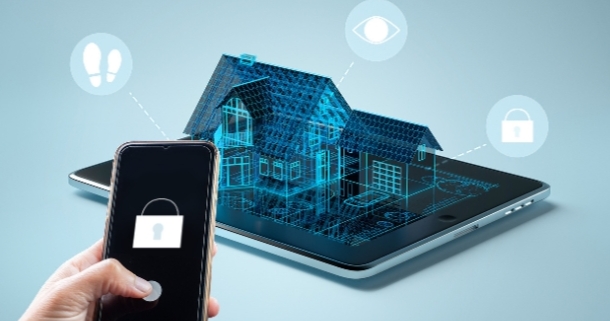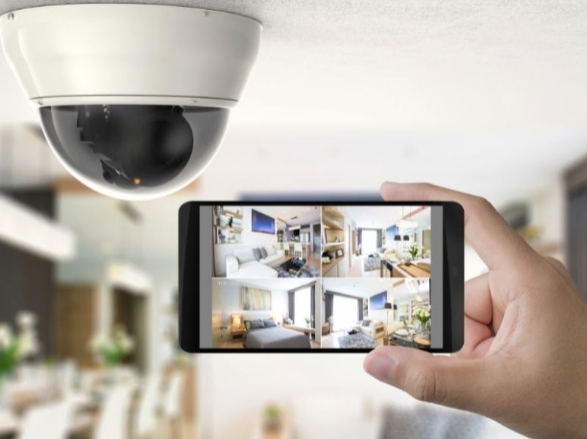I.Introduction
In today’s fast-paced world, where our homes serve as the sanctuary for our loved ones and cherished belongings, the paramount significance of security cannot be overstated. Our homes are more than just physical structures; they are the epicenter of our lives, our refuge from the outside world, and the place where our most cherished memories are made. Therefore, ensuring the safety and security of our homes has become an essential priority. A great resource to learn more about the truth behind security systems is found at housebouse.com provides valuable insights into the world of security and the steps homeowners can take to protect their homes and loved ones.
A. The Importance of Security
Security is not merely a matter of convenience but a fundamental need for all homeowners. The importance of safeguarding our homes cannot be overstated, and there are numerous reasons why investing is crucial.
Protection of Loved Ones: Our homes are sanctuaries where our loved ones reside. Ensuring their safety is paramount, and a well-structured security system offers peace of mind to homeowners. It acts as a shield against potential threats, providing a buffer against break-ins, trespassing, or emergencies like fires or medical issues.
Preventing Loss and Damage: Security systems can deter burglars and vandals, significantly reducing the risk of theft and damage to property. In the unfortunate event of a break-in, security cameras and alarms can help identify culprits and assist law enforcement in apprehending them, often leading to the recovery of stolen items.
Remote Monitoring: The advent of technology has revolutionized security. Modern security systems allow homeowners to monitor their properties remotely, whether they’re at work, on vacation, or simply away for the day. This capability offers real-time insights and control, allowing for quick response in case of any suspicious activities.
Reduction in Insurance Costs: Many insurance providers offer lower premiums to homeowners who have robust security measures in place. By investing in
security, not only do you enhance your safety, but you can also enjoy cost savings in the long run.
Peace of Mind: Ultimately, security is about peace of mind. Knowing that your family, property, and possessions are protected around the clock allows you to focus on other aspects of your life without the constant worry of potential threats.
B. The Evolving Landscape of Security
The landscape of security has experienced a profound transformation in recent years. Advancements in technology, changes in our lifestyles, and the increasing need for more comprehensive security solutions have reshaped the way we protect our homes.
Smart Home Integration: The rise of smart home technology has revolutionized security. Homeowners can now connect security systems to their smartphones, tablets, or computers, allowing for remote control and monitoring. Smart locks, cameras, and motion sensors enable homeowners to keep a vigilant eye on their property, even when they are miles away.
Artificial Intelligence and Machine Learning: AI and machine learning are being employed to enhance security systems. These technologies can analyze patterns, recognize faces, and distinguish between normal and suspicious activities. This significantly reduces false alarms and provides a higher level of security.
Wireless Technology: Traditional wired security systems are giving way to wireless alternatives, making installation easier and more flexible. Wireless security systems are also less susceptible to tampering, as they lack vulnerable physical connections.
Environmental Sensors: Beyond traditional intrusion detection, modern security systems often include environmental sensors that monitor for hazards such as fires, carbon monoxide, and flooding. This expanded functionality adds an extra layer of protection to the home.
Integration with Emergency Services: Many security systems now provide direct connections to emergency services. In the event of an alarm, homeowners can receive rapid response from law enforcement or fire departments, ensuring quick action in times of crisis.
II. Advancements in Home Security Technology
In a world where technology evolves at a breakneck pace, it comes as no surprise that security has not been left behind. The integration of cutting-edge technology has ushered in a new era of safeguarding our homes.

A. Smart Security Systems
Video Doorbells: Video doorbells have become an integral component of smart security. These devices not only allow homeowners to see and speak to visitors at their front doors but also record and store video footage. Equipped with motion sensors, video doorbells can alert homeowners to any activity at their doorstep, even when they’re away. Many models offer two-way audio communication, making it possible to have a conversation with the visitor, which enhances security and convenience.
Smart Locks: Traditional locks are giving way to smart locks that offer advanced control and security. Smart locks can be locked or unlocked remotely using a smartphone app, a key code, or even a voice command. Homeowners can provide temporary access to guests, service providers, or family members without the need for physical keys. These locks often come with tamper alerts, ensuring that you’re always in the know about any unauthorized attempts to gain entry.
Security Cameras: Security cameras have evolved from grainy, single-angle devices into high-definition, multi-functional units. Modern security cameras offer features like night vision, motion detection, and the ability to stream live video feeds to your smartphone. With cloud storage, you can access recorded footage from anywhere, providing a robust means of surveillance.
B. Artificial Intelligence and Machine Learning
Artificial intelligence (AI) and machine learning (ML) are revolutionizing security by making systems smarter and more efficient. These technologies empower security devices to distinguish between normal and suspicious activities, reducing false alarms and enhancing overall security. AI and ML are employed in various ways, such as:
Behavior Analysis: Security systems can learn your daily routines and recognize when something is amiss. If your system detects an unexpected entry or activity, it can send alerts, enabling you to take immediate action.
Face Recognition: Advanced security cameras use facial recognition to identify known family members and authorized visitors while flagging unknown or suspicious individuals. This level of personalization offers an extra layer of security and convenience.
Voice Commands: With AI integration, homeowners can control their security systems using voice commands. This hands-free approach simplifies the process of arming or disarming the system, checking the status, or even requesting specific camera views.
C. Home Automation
The marriage of security and automation is transforming the way we protect our homes. Automation features can include:
Light Control: Smart lighting can be programmed to simulate your presence at home, deterring potential intruders.
Thermostat Control: Integrated thermostats allow for energy savings and can be used to create the illusion of an occupied home.
Appliance Control: Smart plugs and switches enable you to control appliances remotely, adding another layer of convenience.

III.Conclusion
Home security is a critical investment that should never be overlooked. It not only safeguards your property and possessions but, more importantly, your loved ones. As technology continues to advance, we have the privilege of benefiting from increasingly sophisticated and user-friendly solutions. By staying informed about these developments and selecting the best security measures for your home, you can enjoy the ultimate peace of mind, knowing that you’ve taken the necessary steps to protect what matters most. Check out this link to learn about the three key aspects of security that can help keep your home safe and secure.
Frequently Asked Questions (FAQ)
1. What are the key advancements in security technology?
Advances in security technology include smart home systems, artificial intelligence, home automation, and mobile apps for remote monitoring. These innovations have transformed the way we protect our homes.
2. How do smart locks enhance home security?
Smart locks allow remote locking and unlocking via smartphone apps or key codes. They also provide features like tamper alerts and temporary access, making your home more secure and convenient.
3. Can I use a smartphone app to manage the security system?
Yes, you can. With mobile apps and remote monitoring, you can arm and disarm your security system, receive real-time alerts, and view live camera feeds from anywhere in the world.
4. How does artificial intelligence improve security?
AI and machine learning technologies enable security systems to recognize patterns and distinguish between normal and suspicious activities. This reduces false alarms and enhances the overall effectiveness of the system.
5. What is the future of security technology?
The future of security includes integration with smart cities, advanced AI and automation, biometric authentication, blockchain security, and expanded environmental monitoring. These innovations will offer more comprehensive and personalized security solutions.
